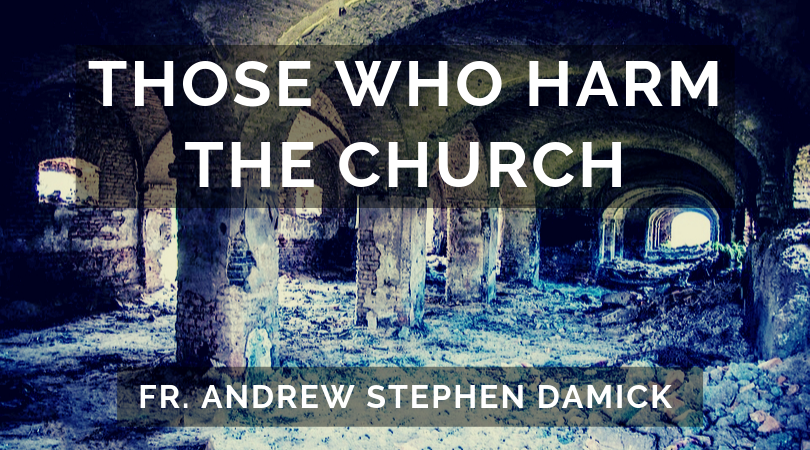
If you make a mistake, I will forgive you. But if you harm the Church…
(spoken by a bishop at a clergy gathering I once attended)
I don’t remember when I first discovered that there were leaders in the Church who weren’t just failures but were actually not even Christian in any recognizable sense. But it was something that disturbed me and that I continue to grapple with occasionally.
People’s faith can get shaken when they learn that Church leaders are weak and sinful, possibly especially because the weakness and sin that so often manifest among Church leaders seem to be so spectacularly bad. And so often, it’s about sins of the flesh. Why is that? If I had to guess, I would say that it’s because sins of the flesh so quickly destroy credibility, and discrediting clergy is one of the easiest ways for the dark powers to neutralize them.
But perhaps even more faith-shaking is when one discovers that some Church leaders aren’t just merely weak, subject to fleshly sins, greed or vanity, etc., but rather that they are actually Machiavellian manipulators. Some are actual non-Christians or even anti-Christians who are in Church work self-consciously for their own advancement, for power over others, for destructive purposes. In this case, the dark powers are not merely neutralizing these clergy but actually empowering them for evil purpose.
Such men may be brilliant, charismatic, even seen as deeply pastoral or effective leaders, but within, they are as whitewashed tombs — beautiful on the outside, but inwardly full of rapacity, corruption and death (Matt. 23:27).
Like the Pharisees of old, they may be very careful to dot every I and cross every T. They often look utterly perfect and admirable, and they usually have many admirers — not just among those of their kind or who wish to be like them but also among actually pious people, who innocently cannot see what is underneath or have never looked for the true fruit of holiness.
It is the true fruit of holiness that we should always look for: love, joy, peace, patience, kindness, goodness, faithfulness, gentleness, and self-control (Gal. 5:22-23). Holiness is creative. It is convivial. It is humble. It seeks only the other and never itself. Holiness is to be like Jesus Christ in His lowliness and self-sacrifice. Holiness may not appear “competent,” but it will always bring forth love and freedom.
Remember that the hour of Christ’s glory was His crucifixion, not His triumphal entry into Jerusalem. At that latter moment, many cried out “Hosanna!” but He Himself came speaking rebuke at that moment for the leaders of the people had not prepared them for the Day of Visitation (Luke 19:44).
That Day of Visitation is a day of vindication, a day of judgment, and while it happened for Israel of old some 2,000 years ago, it will also happen for the whole world on the last day, the Day that is to come.
On that day, those who led the Church for their own self-advancement, to control others, to grow their own glory and comfort will be judged by God. Things will be set right.
The sins of the flesh are at least “easy” to repent of in the sense that it is clear that they call for repentance. They are still harmful, have no doubt. But the sins of the spirit are much more difficult to repent of and will bring down far harsher judgment from God.
Judgment from God is to set things right. When the Lord set right the sins of someone like the woman caught in adultery, His meekness called her to repentance with gentleness (John 8:10-11). But when the Lord sets right the sins of those who exploit the Church — woe unto them on that day!
We all have our sins. Pray that God will keep you from the greater ones, the ones that destroy faithfulness, the ones that drive people from Christ. I believe that He will be gentler on the Day that is to come to those who run away wounded from the Church than He will be to those who wound the Church.




I typically pray to just not be a stumbling block to others. I suppose there is some hope in starting at the bottom….
Convivial is the term which strikes my eye in the description of holiness. It is always attractive to meet a convivial priest who can share a clerical or other joke rather one who is always standing on his dignity.
‘ Promptly brings to mind CSL’s Episcopal Ghost in his little book entitled “The Great Divorce”.
Thank you so much for this teaching. May GOD bless you.